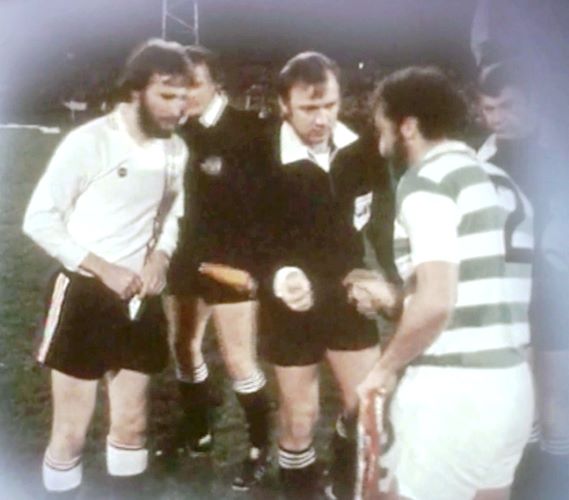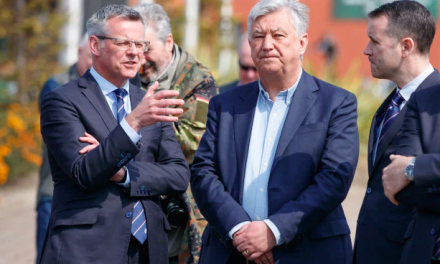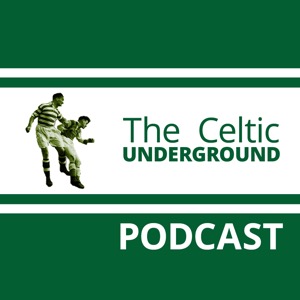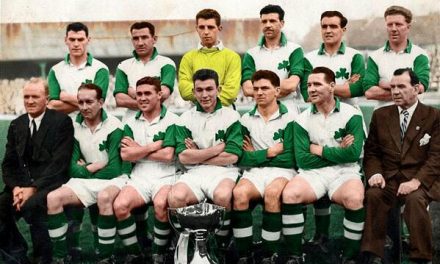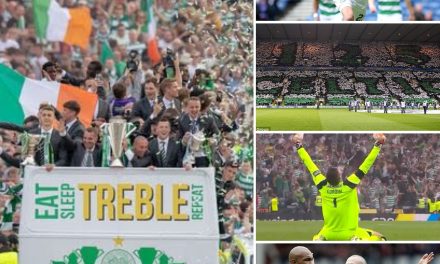Tomorrow marks the 40th anniversary of one of the most unusual European ties Celtic were ever involved in and how, on one cold night in County Louth, they almost suffered their most embarrassing European defeat.
In autumn of 1979 Celtic drew the Irish league champions, Dundalk in the second round of the European Cup. Dundalk were a part time team who were not expected to put up any stiff resistance to Celtic’s passage to the quarter finals. The tie was also a dream for Celtic’s large contingent of fans from the island of Ireland who now had an ideal opportunity of seeing their favourites in a competitive match on Irish soil.
The first leg was an odd game for Celtic. Despite an early Roddy Macdonald goal in four minutes and having a 3-1 lead after just 33 minutes, a Mick Lawlor goal in 66 minutes saw the end of the scoring with Celtic now facing a perilous trip to Dundalk with a slender 3-2 lead in the knowledge that a 1-0 defeat in the return game would see them eliminated. Dundalk’s manager was a real character named Jimmy McLaughlin, and he took great delight in telling the assembled Scottish press corps that his players had been out on the town until 4am on the night before the game. All this only served to paint Celtic’s performance in a worse light and frustrate the Celtic supporters.
Celtic’s trip to Dundalk was massive news in Ireland. Dundalk, knowing they stood a great chance of progressing, declined the opportunity of moving the game to a Lansdowne Road in Dublin where they could have made a more lucrative financial killing by playing the tie in a bigger capacity stadium. Although Dundalk was situated in the Irish Republic, there were security concerns over thousands of Celtic fans coming across from Scotland who would have to pass through Northern Ireland at a time when the ‘troubles’ were at their peak with the threat of Loyalist violence and the presence of the British army in the province.
Celtic were based in the rural Ballymascanlon House hotel in the hope of quiet preparation before the game. If the idea was to have some seclusion then it was not to be as a constant stream of well-wishers and autograph hunters descended on their Irish base. Meanwhile, Jimmy McLaughlin continued with his humorous approach to the big tie by claiming that the teams were now playing for the ‘Catholic championship of the world.’
Celtic’s preparation on the night wasn’t ideal. They arrived late at the ground after police motor cyclists were required to give them assistance through the thronging crowds and then they discovered the pitch was uneven and rutted after building work to erect temporary stands had saw bulldozers drive over the field of play. So many people had interrupted Billy McNeill during his pre-match team talk that assistant manager John Clark was required to sit on the team hamper to jam the door shut to avoid more interruptions, good natured as they may have been.
A record crowd of 16,000 crammed into Oriel Park to create a real cup tie atmosphere under the floodlights. Celtic looked nervous and uncertain of the surface and there were few incidents of note in the first half which ended goalless. At half time a local parish priest was required to warm spectators to keep off the field of play, so close were the fans to the pitch. Dundalk were better organised defensively than Celtic had anticipated and as the game wore on the Irish champions grew bolder with Celtic realising that the loss of just one goal could end in disaster. With only minutes remaining, a ball was played across the Celtic six yard box, which saw Dundalk’s Liam Devine have a clear sight of goal, but the ball squirmed under his feet and the danger had passed. The game ended 0-0, much to Celtic’s relief and the frustration of the Dundalk players who had been inches away from glory.
At last the Celtic players could relax and enjoy the Irish hospitality and the Dundalk players came back to Celtic’s hotel, where they informed the Celtic players that they had actually been tucked up in bed at 10pm in their Glasgow hotel the night before the first leg at Parkhead. Jimmy McLaughlin was quite a character right enough and it seemed he could even have taught Alex Ferguson a few things about ‘mind games’.
There was no TV coverage transmitted back to Scotland and Celtic fans back home were required to rely on Radio Scotland’s coverage which was RTE live commentary provided by the legendary Michael O’Hehir. In all my years of following Celtic I don’t think I was ever endured such a nervous experience than I had listening to O’Hehir’s dulcet tones on that night from Dundalk, which was not helped by a poor medium wave reception.
On the same night Rangers were sent tumbling out of the European Cup Winner Cup when they were thumped 3-1 at Ibrox by a Mario Kempes and Rainer Bonhof inspired Valencia. This spawned a new song for the Celtic fans which was to resonate through the years – No Huns in Europe, oh yes, there’s no Huns in Europe !’
It had turned out to be successful night after all but it’s too easy to forget what a nervous and tense occasion it had been. And it certainly doesn’t seem like 40 years.

